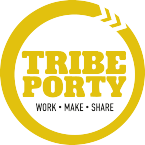Finding Your Ikigai
The Man Who Wanted To See It All
I recently stumbled across a documentary titled, The Man Who Wanted To See It All. It told the story of Heinz Stücke, in 1962 he left Germany and set off on a bike ride touring the world which spanned close to 50 years and covered enough distance to circumnavigate the world 15 times around.
What I found striking about this documentary is that Heinz did not set out to be the best cyclist, or the best photographer and any records that he broke were seemingly a welcomed accident. His soul focus and purpose were set on experience, connection, seeing and being. After leaving his home town in 1962, Heinz decided to not return home as he deemed going home as the end of his adventure. After over 50 years of nomadic living, this is where the documentary found its focus.
The documentary shows Heinz putting his memories in order and sorting through his tens of thousands of photographs, reuniting with family and friends and reflecting on his achievements and sacrifices. Something that has stuck with me since watching this documentary was how his friends spoke of his life journey. Friends from childhood reflected on his journey with great solace, they asked the question “I wonder if he is happy?”. The conversation felt heavy and remorseful. In contrast, the family that grew close with Heinz in Japan spoke of Heinz and his journey with tremendous joy and fascination, they remarked that Heinz had achieved Ikigai. But what is Ikigai and how do you find your ikigai?
“I consider myself a treasure trove, what I hope of the day is that it gives me the pleasure of finding something new” – Heinz Stücke: Home is Elsewhere.
What is ikigai?
Ikigai roughly translates to, a reason for being. The word itself is composed of two worlds: iki, which means life and gai, which describes value or worth. The word can be used similarly to happiness but ecompasses a deeper nuance. Ikigai is also about discovering your purpose and aligning your actions with this. If you have a clear sense of purpose, you can then align your sense of purpose with your values and goals.
By thinking of ikigai in relation to Heinz, it’s easy to assume that to achieve it you must do something extraordinary, however the true meaning of ikigai is rooted in the ordinary. Ultimately, this practice allows for moments of happiness in each day, you can find meaning and joy in even the most mundane tasks.
“I found the way of life I enjoy, and what is better than to follow a life which is fulfillment. The journey is my fulfillment.” –Heinz Stücke: Home is Elsewhere.
Using ikigai as a tool
In Western society, ikigai is seen as a tool to achieve a long and happy life. A google search will show you a plethora of venn diagrams on how to achieve it with four overlapping qualities: what you love, what you are good at, what the world needs, and what you can be paid for.
This Western approach includes work and payment which isn’t necessarily the truest adaptation of the meaning. At its core, ikigai is as simple as finding out what makes you happy each and every day. When you ask yourself questions around the principles of Ikigai it is vital to curate answers about you and your soul, not your work.
Of course I agree that you can align the principles of ikigai with your working life in order to achieve happiness and satisfaction in all meanings of the words. Nevertheless, I think it is wrong to consider your work when asking questions around ikigai. Ikigai is deeper than your work, it is about you, your inner being and how to nourish your soul. Once you have answered these questions honestly, you can then apply these to your work practice.
“Japanese people believe that the sum of small joys in everyday life results in more fulfilling life as a whole”- Yukari Mitsuhashi
Asking the right questions to find your Ikigai
Your life is not limited to your work. It is only possible to find ikigai in your practice if your work’s values and ethics align to your own, your work must also actively nurture your personal growth and wellbeing. There is nothing wrong with the Western adaptation of ikigai and it can be used as a powerful tool to navigate and curate your working life.
Regardless, I think we should break away from ‘Ikigai in the workplace’ and instead keep it simple. It is far more powerful to get in touch with yourself. If you can find something in the everyday that makes you happy, brings you joy or a sense of awe you too can find ikigai. No matter how big or small.
-
- What lifts your spirits?
- What gives you a feeling of awe?
- What are small things that you cherish?
- What gives your life meaning?
- What might you want to contribute?
- What are you doing when you lose track of time?
Write down your answers to these questions and actively incorporate the answers into your everyday life. This is how to find and nurture your Ikigai and lead a happier and fufilled life.
“essentials to happiness in this life are something to do, something to love, and something to hope for.” – Hector Garcia, The Japanese Secret to a Long and Happy Life.
Helpful Links
To read more about awe, click here.
Want to find out more about Ikigai, click here.
To find out more about Hans Stücke, click here.
We post new blogs every month. To see more, click here.
Join us for our next Tribe Talks with Rise of Happiness to help create your path to happiness. To book your free ticket, click here.
Share your thoughts and keep in touch by signing up to our newsletter below!
Thanks for reading,
Alice.


